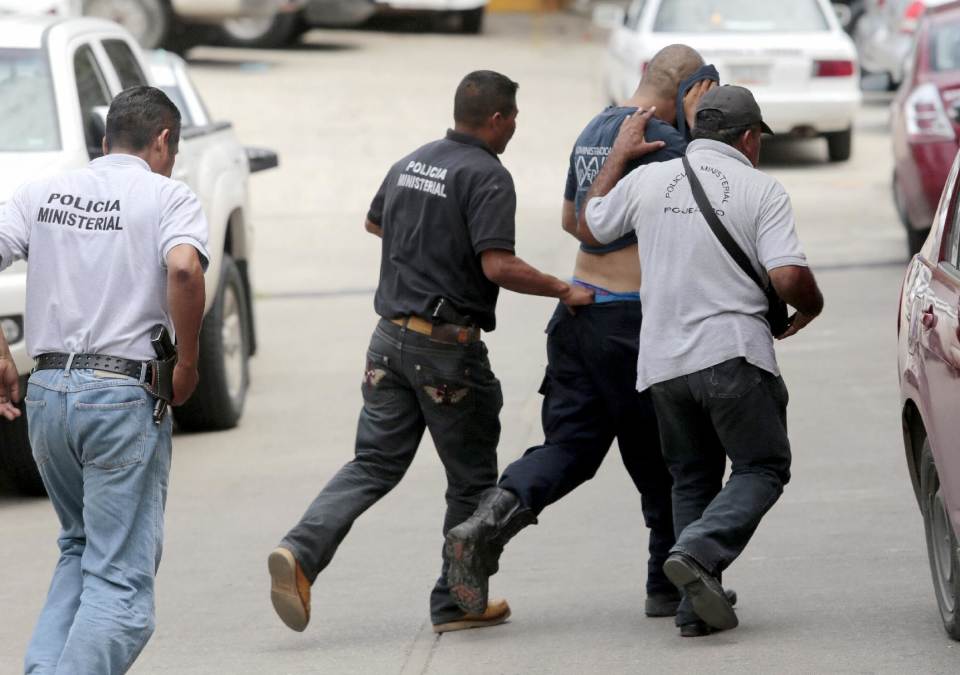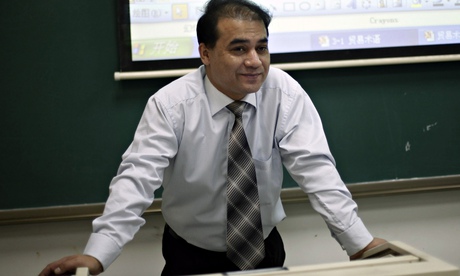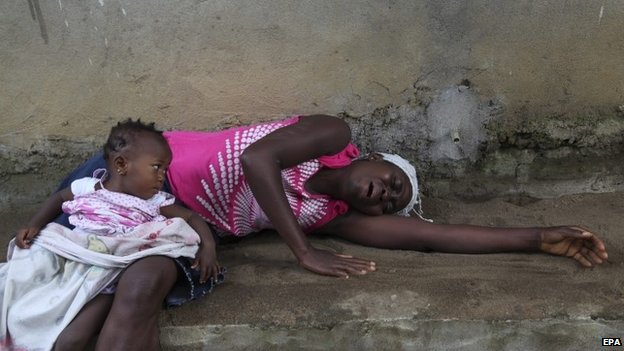By Hojin Choi
Impunity Watch Reporter

HONG KONG, China – The democracy movement in Hong Kong has become a massive civil obedience display as tens of thousands of citizens gathered and rallied in the streets. The Hong Kong police used violent tactics, but the protesters refused to disperse.
Over the weekend, a significant number of protesters clashed with police forces, and the city spiraled into chaos. The protesters occupied central financial streets in Hong Kong as part of a planned action called “Occupy Central.” College students boycotted their classes as the number of demonstrators continued to grow. The protest was non-violent as they were merely “sitting.”
However, as the protesters refused to disperse, police engaged them using tear gas and pepper spray, and the protesters resisted with umbrellas and masks.


As time passed, the protesters became more outrageous. On Monday, the overnight clashes between the protesters and police seemed to escalate the tensions. The New York Times reported that Hong Kong police not only failed to disperse the protesters but also “motivated more people to join on Monday.”
A 30-year-old bank worker joined the protest during her lunch hour and said “what [police were] doing was not appropriate, especially the tear gas. The students were completely peaceful.”
Another protester, a mother of two, joined the protest for one hour to show her support because the protesters “are fighting for our future, for my children’s future.” She said she decided to participate after seeing tear gas fired at the protesters. To her, they were “so young.”
The protesters want political independence from the mainland of China. Hong Kong was supposed to have its own electoral systems that are independent and separate from the mainland starting in 2017. However, as Beijing had decided that it would allow only pro-Beijing candidates and exclude pro-democratic candidates for the election in 2017, citizens and activists in Hong Kong announced a large-scale civil protest.
“One country, two systems” was the promise made by the Chinese government when the U.K. returned Hong Kong to China after a 150-year colonial period. However, the recent political attitude of Beijing has scared Hong Kong citizens. Under one of the most advanced financial businesses in the world, Hong Kong has a high average income level per person ($53,203), which is close to the U.S. and more than four times higher than China ($11,904). They have persistent worries about different political and market systems between China and Hong Kong. Recent economic slow down contributed to that worry, and Beijing’s decision regarding the election was the final straw..
Beijing seems to be taking extraordinary measures to prevent reports from spreading outside, and the demonstrators called for others’ attention through foreign news media outlets.
According to Sinoshpere, a Chinese blog run by the New York Times, a directive order from the Central Propaganda Department in Beijing guided websites to delete any mention of the issue in Hong Kong. Only short articles produced by state news agencies were permitted in the mainland of China. The government also blocked popular social platform Instagram in fear of spreading pictures of the protest. The word “Occupy Central” and other related words were banned in Chinese SNSs, smartphone applications, and so on. Allegedly, some Chinese news organizations did deliver the news about Hong Kong, but under strict censorship or supervision.

On the other side, some people in Hong Kong expressed a different opinion about the student-led protest. A woman said in an interview with the ABC News that “those of us who came to the city 60 or 70 years ago had nothing and we worked and suffered so much to make Hong Kong the rich city it is today. And now the protesters have made our society unstable. For me, being able to eat and sleep is already a luxury.” She added, “I don’t need democracy. What does it mean?”
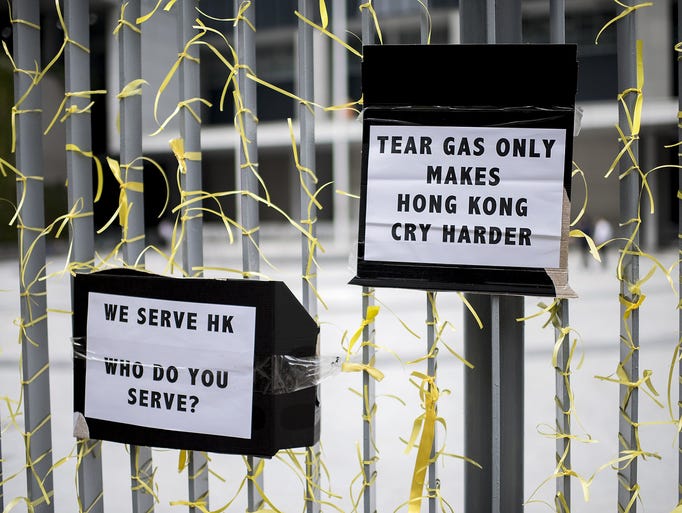
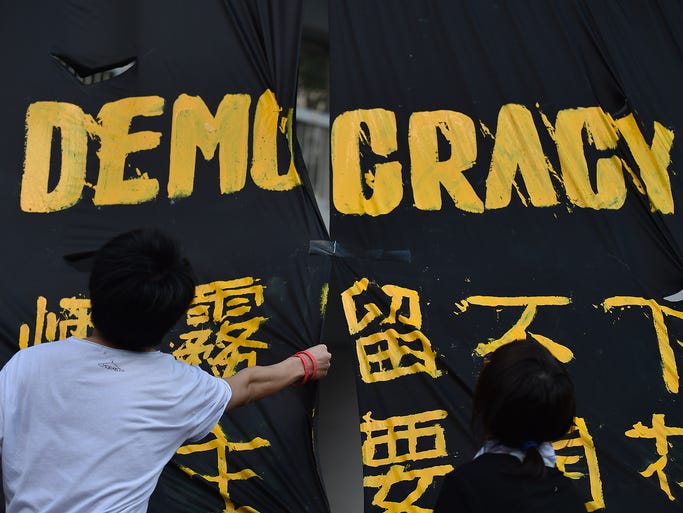
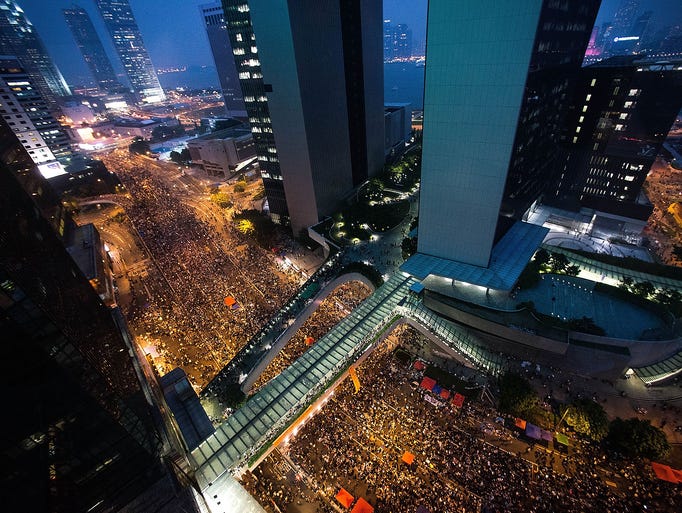
For more information please see:
USA Today – Hong Kong democracy protesters defy calls to disperse – 29 September 2014
The Boston Globe – What’s happening in Hong Kong? – 29 September 2014
Sinosphere (The New York Times) – Beijing Blocks Reports on Hong Kong Democracy Movement – 29 September 2014
The New York Times – Hong Kong Protesters Defy Officials’ Call to Disperse – 29 September 2014
The Washington Post – Hong Kong police try and fail to clear protesters with tear gas – 29 September 2014
